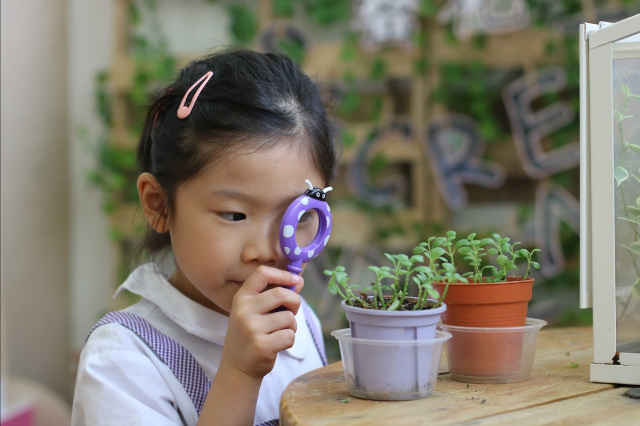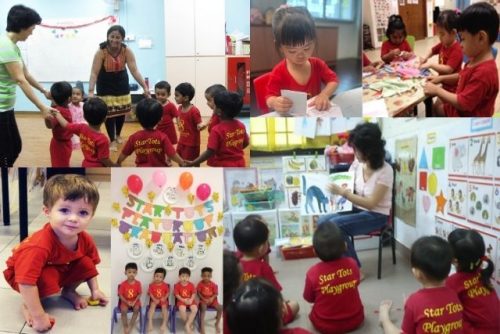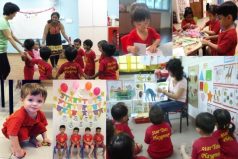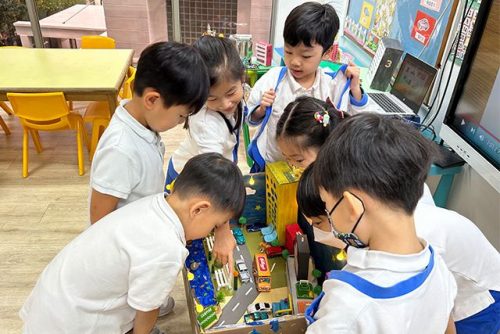How can we inspire our children to do their best and pursue excellence? Rachel Lim speaks with Dr Vanessa von Auer, Clinical Psychologist at VA Psychology Center.

Q: What are ways parents can define “excellence” for their children?
Dr von Auer: There are many ways to define excellence but mainstream society typically focuses heavily on “academic excellence” and forgets or even dismisses other types of successes. Parents need to examine their children holistically, which requires noticing and fostering other ways to achieve their personal excellence. For example, creative successes in the arts, drama, dance, music should all be acknowledged. Social success in terms of demonstrating empathy, kindness, and excellent interpersonal skills are all assets to a child’s development.
⇒ Related Read: Benefits Of A Holistic Program For Your Child
Q: What are some pitfalls to avoid while spurring kids towards excellence?
Dr von Auer: It is easy for well-intentioned parents to come across as too harsh or critical when they expect their kids to achieve excellence. Instead of putting pressure on the child, praise the child’s efforts and perseverance. This will help motivate children to achieve their personal best without feeling “lousy” if they don’t succeed the first time.
Q: What can parents do when they face resistance from their children?
Dr von Auer: Different personalities find different priorities. If your child does not see eye to eye with you on what their definition of success is, then allow your child the freedom to decide this for themselves. This space will help them find their personal interest in which they can strive for excellence.
⇒ Related Read: Important life skills to teach your children for success
Here are six more important points to note.
1. Recognise your child’s passion
Karen Arnold, a researcher at Boston College, followed high school valedictorians and salutatorians from graduation onward to see what becomes of those who lead the academic pack. The research findings revealed that even though most are strong occupational achievers, the great majority of former high school valedictorians do not appear headed for the very top of adult achievement arenas. Arnold said, “Valedictorians aren’t likely to be the future’s visionaries. They typically settle into the system instead of shaking it up.”

She postulated a possible reason that schools reward being a generalist. There is little recognition of student passion or expertise. The real world, however, does the reverse. Arnold said, “Valedictorians are extremely well rounded and successful, personally and professionally, but they’ve never been devoted to a single area in which they put all their passion. That is not usually a recipe for eminence.”
2. Quit being a helicopter parent
“Helicopter parenting” refers to the approach by parents who hover unnecessarily over their children at the expense of nurturing their child’s independence. The Ministry of Education (MOE) and some schools are making a push to weed out such excessive parenting practices.
MOE shared a Facebook post highlighting examples of helicopter parenting, such as debating with a teacher to get one more mark, or taking homework to school for a child when he forgets to take it along with him. “You want to help,” wrote MOE in the post, “But do you know that [helicopter parenting] may hinder your child from being independent, savvy and street-smart?”
3. Help kids delay gratification
Have you heard of the famous “marshmallow test” conducted by Walter Mischel and a team of researchers at Stanford University in the late 1960’s and early 1970’s? 4-year-old children were presented with a marshmallow and told they could either eat a marshmallow now, or wait 15 minutes and receive two marshmallows.
Some children gobbled the marshmallow immediately, while others managed to wait the full 15 minutes and receive the reward of a second marshmallow.
In the follow-up with the children for the next several decades, the researchers found that the 4-year-olds who had successfully waited for 15 minutes differed in significant ways from the children who could not wait.
Over the years, the children who had “passed” the marshmallow test developed positive characteristics such as better emotional coping skills; higher rates of educational attainment; higher Scholastic Aptitude Test (SAT) scores; lower Body Mass Index (BMI); lower divorce rates; and lower rates of addiction.
Get comfortable with saying “No” and “Wait” to your children. They will thank you later in life.
4. Get out of the house with them
If you are wondering about how to inspire “social excellence”, take a leaf from local celebrity mummy Jacelyn Tay’s parenting mantra. She writes on her Instagram,
“Travelling is tremendously beneficial for our growth and development, both adults and kids… When we travel, we have to accept that things may not turn out to be what we expect. It may suddenly rain and you ain’t got a brolly. The child vomits on a long car ride… Well, only when we are forced to get out of our comfort zone, we are able to stretch and grow.”
She wisely pointed out,
“Kids become more tolerable to upsets in life and differences in people and culture. When you travel with your kids, they develop bigger hearts. So for parents who feel inadequate in bringing your young kids out to other parts of the world, think of it as an adventure for things to go wrong and it is good cos both you and your kid grow.”
5. Teach them self-care
Inculcate healthy habits such as eating in moderation, exercising regularly and getting sufficient sleep. When you demonstrate and teach your kids how to make wise choices in bodily care, they have a constant source of clean fuel to meet the demands of life and pursue excellence.
⇒ Related Read: Teaching children the value of being true to themselves
6. Be the person you are proud of
Lastly, the inspiration to be excellent is best caught, not taught. Dr von Auer encourages parents to always be the person that they are proud of because in “this way, your children will model this personal motto and belief themselves. If children see their parents persevering with a good attitude, they are more likely to follow suit.”
By Rachel Lim.
This was first published in The New Age Parents e-guide.
* * * * *
Like what you see here? Get parenting tips and stories straight to your inbox! Join our mailing list here.
Want to be heard 👂 and seen 👀 by over 100,000 parents in Singapore? We can help! Leave your contact here and we’ll be in touch.


























































